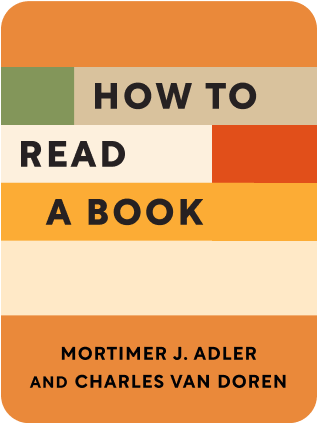

This article is an excerpt from the Shortform book guide to "How to Read a Book" by Mortimer J. Adler and Charles van Doren. Shortform has the world's best summaries and analyses of books you should be reading.
Like this article? Sign up for a free trial here .
Do you want to get into ancient philosophy but are not sure where to start? How is reading old philosophy works (e.g. Plato) different from reading modern philosophy?
In their book How to Read a Book, authors Adler and Van Doren provide advice on reading philosophy. Reading philosophy isn’t like most other sciences because it deals with questions that can be answered in the mind. For this reason, the authors provide questions you should be asking while you read and things to consider.
Continue reading to learn what Adler and Van Doren have to say about reading philosophy literature.
How to Read Philosophy
According to Adler and Van Doren, philosophical works discuss the kinds of questions that children ask. Broadly, these questions can be:
- Theoretical/speculative questions about what is or what happens. These fall into three categories:
- Metaphysics: questions about what it means to exist
- Nature: questions about change or transformation
- Epistemology: questions about knowledge, its causes, and its limits
- Practical/normative questions about what should be done. These can be divided into:
- Ethics: right vs wrong
- Politics: good society and the individual in relation to the community
Unlike science, which often requires external data, philosophy deals with questions that can be answered entirely within the mind. (Shortform note: In a 1989 interview, Adler argued that “the sciences give us knowledge of the world, but not understanding of it and certainly no wisdom about it.”) The questions are varied and deep—for example, does life have meaning? Where do thoughts come from? How did the universe begin? And so on. However, note that not all questions asked by philosophers were philosophical. For example, the question “Where do thoughts come from?” may not be purely philosophical in light of advances in modern neuroscience.
| New Questions for the 21st Century In many ways, philosophy is a relatively unchanging discipline—philosophers today struggle with the same questions that Aristotle and Plato asked. However, the social technological revolutions of the last century have brought some new philosophical questions to light, including: Should we privilege romantic love between two people above other forms of relationships (such as platonic love between two people or romantic love between three people)?Is a sophisticated artificial intelligence system “conscious” in the same way that a human mind is?How can we define “gender”? |
Adler and Van Doren argue that the masses were the intended readers of philosophy works, at least until the 1930s. This includes the work of ancient philosophers like Aristotle and Plato. However, like math and science books, the authors argue that modern philosophy books aren’t written for lay readers. (Shortform note: While this may have been true in 1972, several popular, easily accessible philosophy books have been published since. For example, in 1974, Robert M. Pirsig published Zen and the Art of Motorcycle Maintenance, a philosophical novel that quickly became a bestseller.)
Classic philosophical works occur in various forms, such as:
- Dialogues (like Plato)
- Essays written straightforwardly (like Aristotle)
- Meeting of objections, first giving the wrong answer then countering (like Aquinas)
- Systemization, which is formalizing in mathematical form (Descartes)
- Aphorisms, containing pithy statements that the reader must work to connect and expand (like Nietzsche).
(Shortform note: If you’re brand new to reading philosophy, you may wish to start by reading dialogues. Philosophical dialogues are written like a play in which two or more characters debate philosophical topics. The use of characters and the conversational format makes it easier and more fun to follow the argument.)
On theological works: Adler and Van Doren recommend temporarily suspending your disbelief about the dogma in order to evaluate the author’s argument. Take the assumptions to be true, then see what arguments and conclusions result. Do not discard the entire work, assuming the arguments are as dogmatic as the assumptions. (Shortform note: Adler’s perspective on reading theological works as a nonbeliever is unique. He spent much of his career as a secular philosopher studying the work of Catholic theologian St. Thomas Aquinas before eventually converting to Christianity at the age of 81.)
The Four Questions:
- What is the overall message or theme of the book?
- State the questions the work tries to answer.
- How does the author’s argument unfold?
- Discover the assumptions of the author.
- Define the terms: They often come from common speech but are used in a very special sense (for example, in Zen and the Art of Motorcycle Maintenance, Pirsig uses the word “quality” in a very specific way).
- Is the author’s argument valid?
- You must answer the important questions for yourself, with arguments to back them up.
- What are the implications?
- Theoretical conclusions can have important practical consequences.
| Additional Tips for Reading Philosophy Many guides to reading philosophy parrot Adler and Van Doren’s advice for general analytical reading (such as skimming first, reading twice, and taking notes in the margins). Here are some additional tips for reading philosophical works that expand on Adler and Van Doren’s advice:Take your time with the ideas. After you close the book, continue to sit with the ideas as you go about your day. Philosophy is often dense by nature, so you’ll need this extra thinking time before you can make an informed judgment on what you’ve read. Imagine yourself in the author’s shoes. If you find yourself criticizing their arguments, try to think of how the author would answer your criticisms. This is a deep form of intellectual empathy that can help you understand the author’s arguments. Familiarize yourself with philosophical language. Words like “valid” and “sound” have a special meaning in the context of philosophy—understanding this special language will make it easier to answer the second major question, “How does the author’s argument unfold?” |

———End of Preview———
Like what you just read? Read the rest of the world's best book summary and analysis of Mortimer J. Adler and Charles van Doren's "How to Read a Book" at Shortform .
Here's what you'll find in our full How to Read a Book summary :
- How to be a better critic of what you read
- Why you should read a novel differently from a nonfiction book
- How to understand the crux of a book in just 15 minutes






